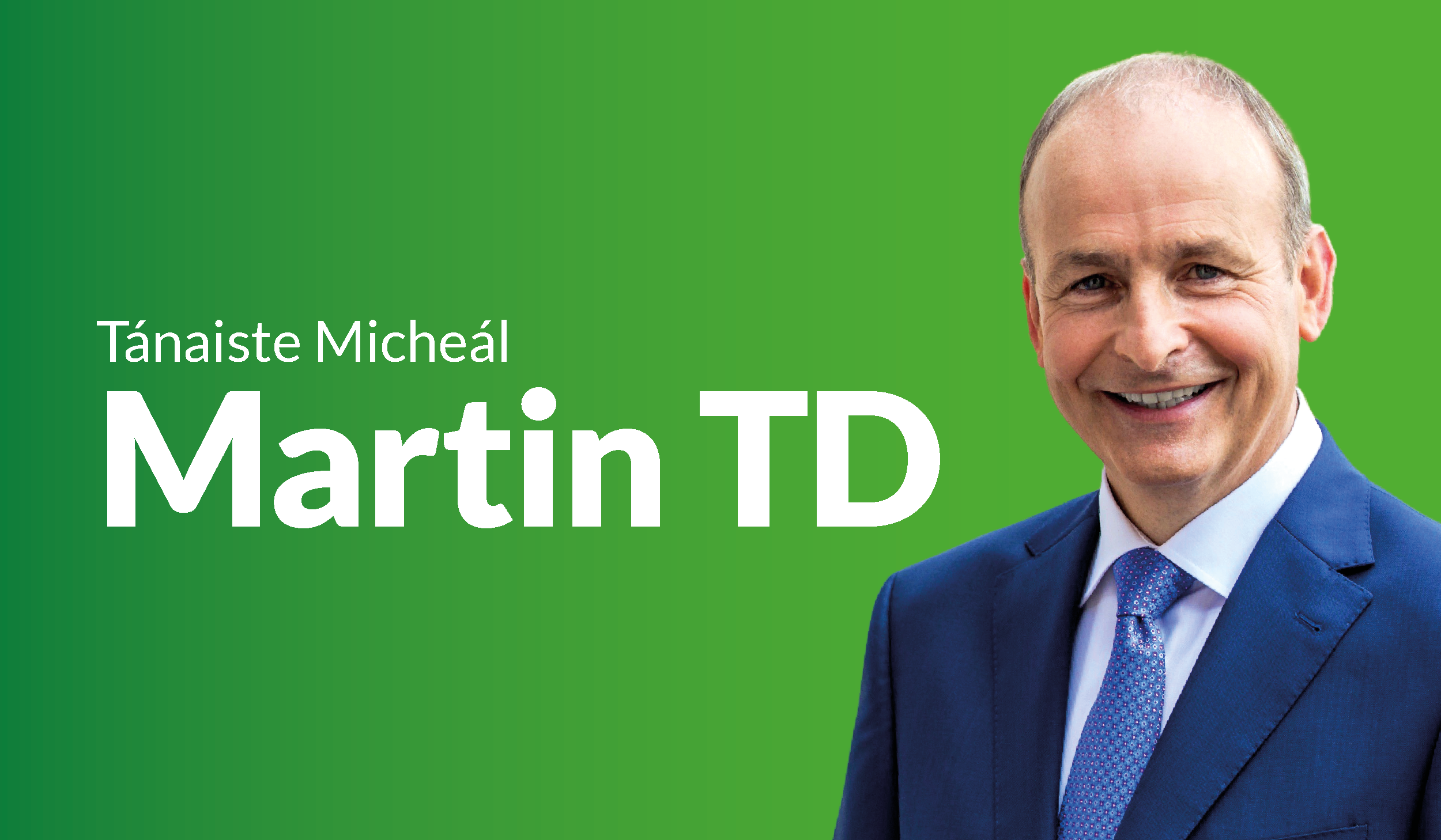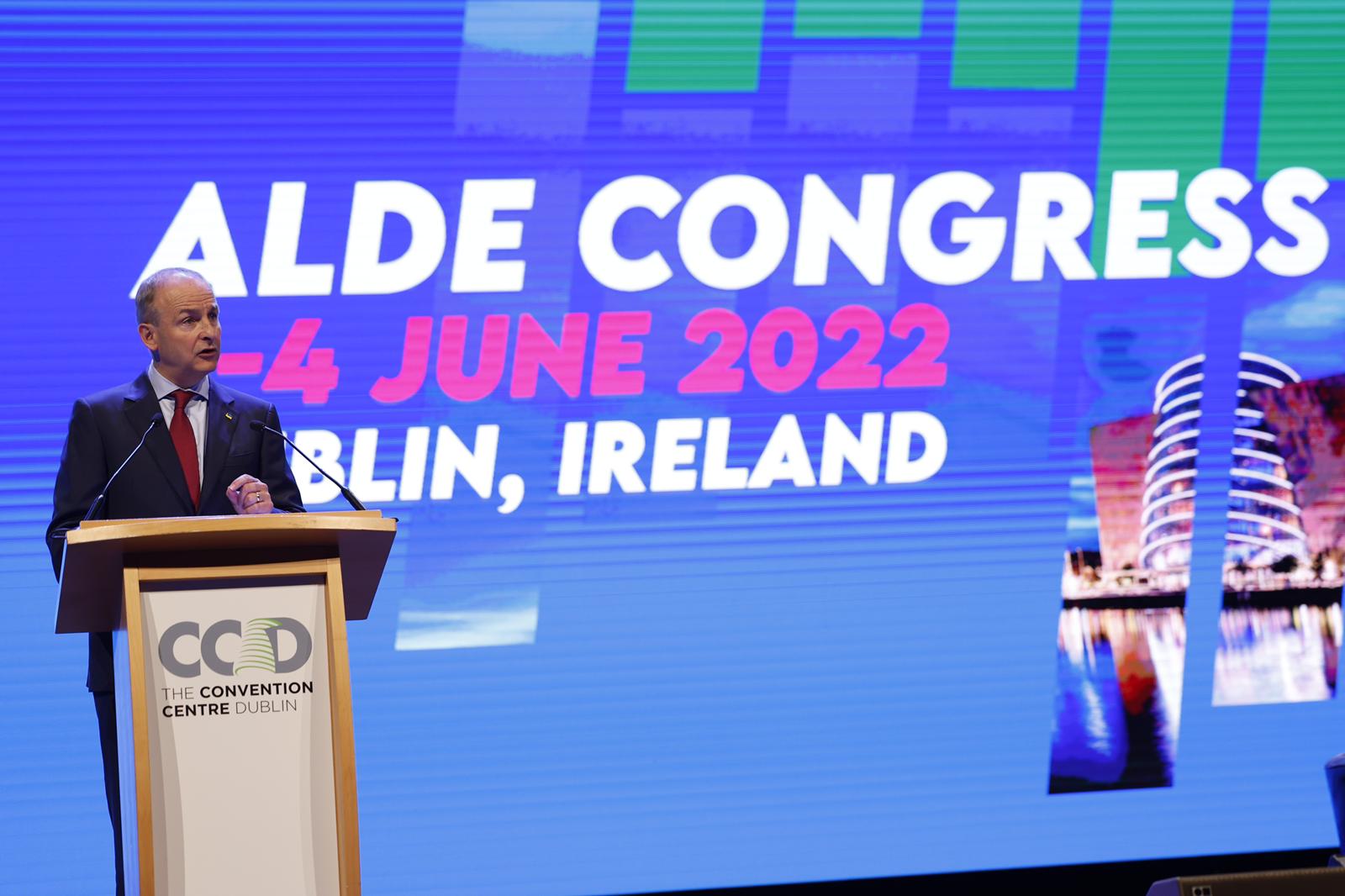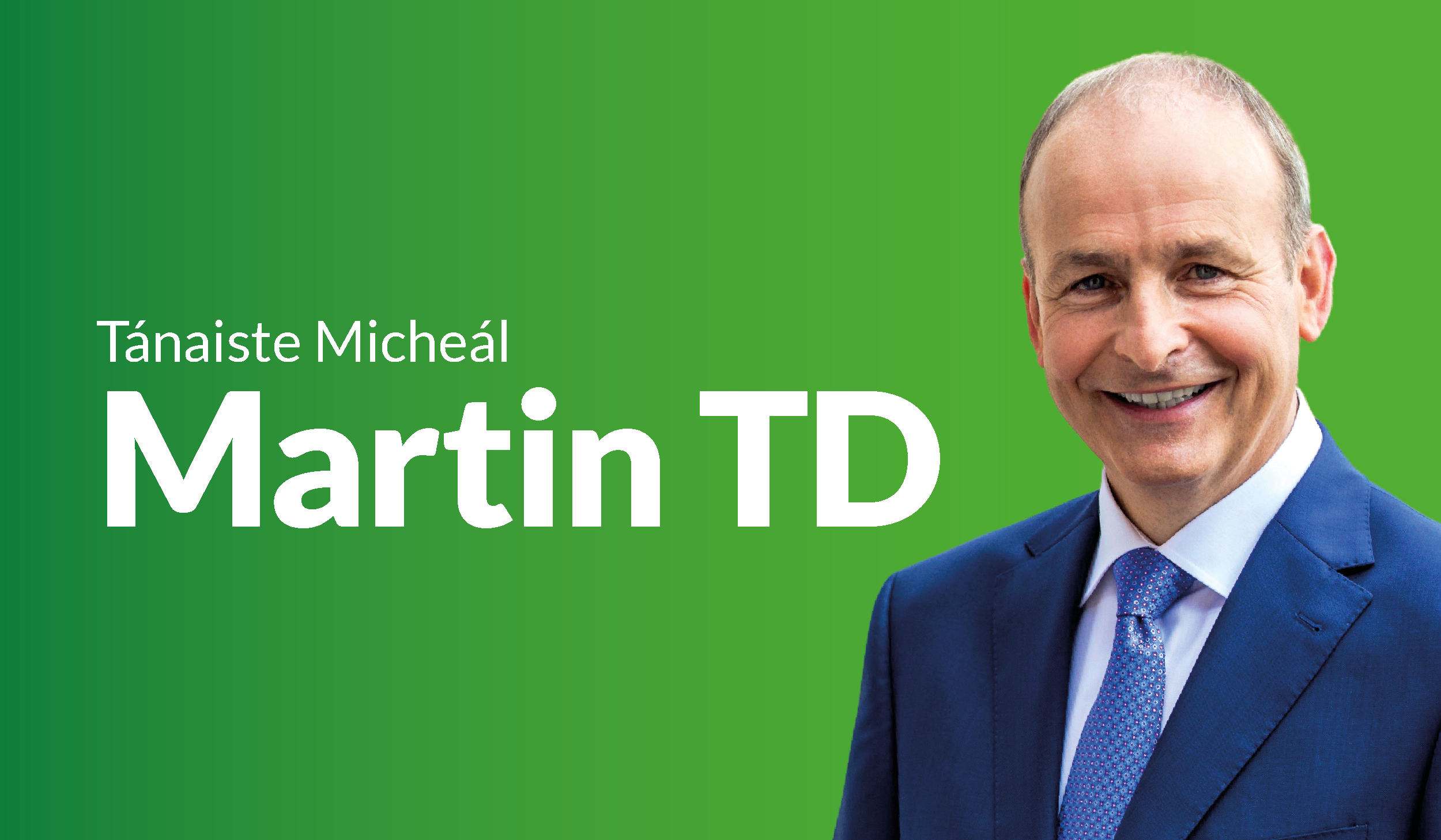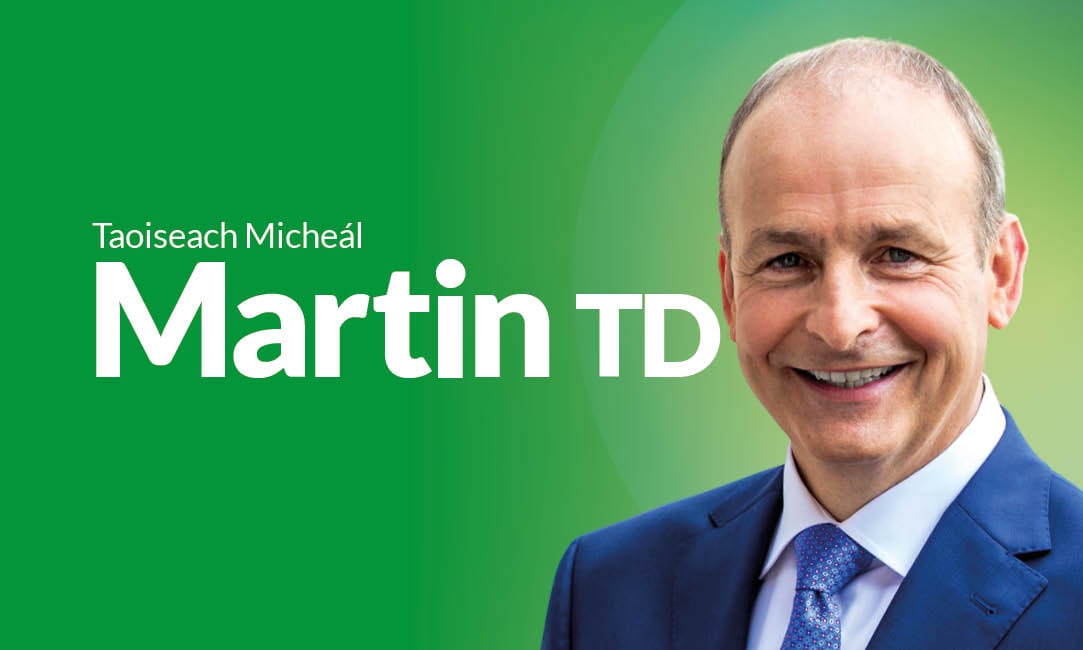Speech by the Taoiseach, Micheál Martin TD; Plenary of the European Parliament
Published on: 08 June 2022
Speech by the Taoiseach, Micheál Martin TD; Plenary of the European Parliament
President Metsola, Vice Presidents,
Distinguished leaders of the political groups,
Members of Parliament,
Citizens of Europe,
It is an honour to be here today. Thank you, President Metsola, for your kind invitation to address this session.
I would like to salute you for your leadership of the Parliament.
Before I reflect on Ireland’s European path, it would be remiss of me not to pause to pay tribute to that great European, David Sassoli, who graced the office of President of this Parliament with such intelligence and dignity.
Through his life, and in his work, he demonstrated integrity, compassion, and a strong focus on the most vulnerable in society.
He will be long remembered, especially here in this Parliament, and he is sorely missed.
Ar dheis Dé go raibh a anam uasal.
By any measure this is a critical moment in the history of Europe and the Union which we all share.
We face a series of fundamental challenges.
Will the values of free democracies prevail in the face of military and other aggression?
Will we act together to protect hard-won progress in our societies?
Do we have the ambition and urgency required to achieve energy security and tackle an existential climate crisis?
Do we have the strength to overcome the many forces which seek to return us to the days of destructive rivalry and competition between the nations of Europe?
My message to you today is that we stand resolutely with all those who share the core values of peace, democracy and progress in Europe – and we believe that protecting these values demands a strong European Union.
Is léargas é ballraíocht na parlaiminte seo ar éagsúlacht na hEorpa, ár dteangacha, ár gcultúir agus ár startha. Ní mar a chéile aon dá náisiún, ach tagaimid le chéile agus, i gcóimheas, déanaimid bealach chun cinn a chíoradh, a phlé agus a leagan amach.
Cuirim fáilte mhór chaoin roimh an deireadh atá tagtha leis an maolú ar stádas na Gaeilge san Aontas Eorpach ó thús na bliana seo.
Tá an Ghaeilge anois ar chomhchéim le teangacha bhunaitheoirí eile an Aontais Eorpaigh.
Is dul chun cinn suntasach é agus treiseofar úsáid, pobal agus cnuasach na Gaeilge mar thoradh ar an dul chun cinn sin.
Ireland’s near fifty years of membership of this Union have been transformative.
We have seen an overwhelmingly positive impact across all dimensions of our society.
Last month we marked the fiftieth anniversary of the decision of the Irish people to join what we now call the European Union.
For us there is simply no doubt, this membership has been an historic enabler of sustained progress for Ireland.
The decision of the people of Ireland to support membership was overwhelming, but it was not achieved easily.
In the six existing Member States questions were asked if Ireland, then the poorest country in Europe, was simply too peripheral and too poor to be able to survive in the European Community.
At home a coalition of forces used the classic anti-Europe tactics of claiming that we would be swamped by a neo-imperialist organisation and would lose our separate identity.
However, an overwhelming majority rejected these arguments. The Irish people instead chose the path of hope and solidarity – of cooperation and a shared future.
Time and time again this decision has been vindicated.
One of the inspiring things about that decision fifty years ago is the role which was played by leaders from our revolutionary generation – those who as young people had done so much to win our independence against tremendous odds.
They did not see Europe as a threat to our sovereignty, but as an enabler of our sovereignty.
They rejected the idea of nationalism as a narrow and defensive concept – instead they believed nationalism should be outward and forward-looking.
And just as they did, we continue to be inspired by the ideas contained in our Proclamation of Independence from 1916 – when the greatest of our leaders committed their country to the ideals of equality, diversity and cooperation with other nations.
That is why the democratic majority of the Irish people remain Euro-positive and why we see the success of the European Union as directly linked to the success of nation states.
Over the last 50 years sharing our sovereignty with our European partners helped to make us all safer, stronger and more prosperous.
And Ireland has in turn been proud to contribute strongly to the shaping of today’s European Union.
In the intense debates and negotiations of the past two years I and my government have been very clear – the Union must be strengthened.
In order to serve us all better, and to respond to urgent challenges, it needs more ambition and resources.
We have been and we remain supportive of a growing and diverse Union based on shared values and shared prosperity.
This has been a consistent theme during our Presidencies of the Council. During our 1990 Presidency we strongly supported EU recognition of German reunification.
During our 2004 Presidency we worked to ease the arrival of ten new Member States to our Union and hosted a Day of Welcomes to underpin this.
Through enlargement we have welcomed new communities and they have since made a wonderful contribution to the Irish economy and society.
And enlargement has been essential to strengthening our Union as a whole.
As we are seeing every day during the response to Russia’s war against Ukraine, Member States that secured their freedom from Soviet imperialism and totalitarianism are a powerful voice reminding us that free democracy must be defended.
I am strongly of the view that the prospect of membership can a powerful driver of reform, and that membership itself is the most powerful tool we possess to enlarge the sphere of democracy, peace and security in our region.
Our Treaties are clear that any European State which respects the values of the Union and is committed to promoting them may apply to become a member of the Union.
It should be a source of pride and inspiration that the Union continues to be a beacon of hope to people at our borders – to the people of the Western Balkans; to the people of Ukraine, currently sacrificing and enduring so much in defence of our shared European values; to the people of Moldova and of Georgia.
We should support those looking to join in undertaking the reforms and preparations necessary, and when they meet the criteria we should not place further barriers in their way.
I strongly support Ukraine’s application for membership and I look forward to the Commission’s Opinion.
I hope that, when the European Council meets in June, it will be possible to send the people of Ukraine a clear and positive message.
Ireland’s lived experience – and we are not alone in this – is that EU membership is transformative. It is not only about access to markets and to economic opportunity, though that is, of course, important, it is about what it means for people.
People who send their representatives to this Parliament.
People – young people especially – who benefit from the freedom to move throughout the Union, to learn, to work, to experience life in another place and with another culture.
People who gain confidence and strength from knowing that they live in a Union of values, of laws, of democracy, in which human rights and human dignity are fundamental guarantees.
That is our strength.
Ireland is proud to be part of such a Union.
Peace in Ireland
And no matter what its opponents say, let us never forget that the European Union is the most successful initiative for peace in our continent’s history.
In Ireland we feel this so deeply because of the Union’s role in supporting our successful efforts to bring an end to campaigns of violence which lasted for three decades.
When I arrived in Strasbourg yesterday I was privileged to join President Metsola in a ceremony to honour the only person to serve as an MEP who was also awarded the Nobel Peace Prize.
John Hume was a political giant. A proud Irish nationalist and democrat, he dedicated his life to the cause of serving his people and persuading the minority to abandon violence and join in democratic politics.
John was passionate about his country’s future – and that is why he was also a passionate supporter of the European Union.
John had the vision to see the narrative of Ireland’s path to peace in the wider narrative of peace in Europe – a peace built on respect for political and cultural diversity cemented with economic inter-dependence.
He overcame opposition from both extremes to chart a peaceful way forward for Ireland.
His integrity and bravery shone through.
With another courageous politician, David Trimble, he was awarded the Nobel prize for an unwavering commitment to peace.
He won every election he stood in and served in this Parliament for 25 years.
It is one of the many harsh realities of the Brexit vote of 2016 that no serious consideration was given to the implications for Northern Ireland and the agreement which underpins peace and reconciliation.
The Good Friday Agreement provides a clear framework for protecting different identities and interests in Northern Ireland.
It is a triumph for democratic politics and it has been a model for conflict resolution in many parts of the world.
I can think of no more solemn agreement than one which has ended a deadly conflict, has been democratically ratified, and has been in operation for a quarter of a century.
Because of this a very detailed deal was negotiated and adopted to limit the damage on Northern Ireland caused by Brexit.
Central to achieving this generous deal was the unwavering support and solidarity of our partners in the European Union, including the members of this Parliament.
I want to pay tribute to the European Parliament which was absolutely clear in its support for the Good Friday Agreement, and on the need to find a unique solution that would work for Northern Ireland.
That solidarity mattered.
That solidarity continues to matter.
The unique solution was, of course, the Protocol on Ireland and Northern Ireland that is an integral part of the Withdrawal Agreement between the EU and the UK.
It is perfectly reasonable to look for ways to improve the operation of the Protocol – but unfortunately what we have seen are bad-faith efforts to undermine a treaty freely entered into.
Instead of trying to create a constructive atmosphere for all to engage, we have actually seen efforts to block agreements or introduce new problems.
In contrast, the EU has worked hard to find ways to ensure that where there is a negative impact on businesses and citizens in Northern Ireland it is minimised as much as possible.
Vice-President of the Commission, Maroš Šefčovič, and his team have done remarkable work in listening to businesses and communities throughout Northern Ireland. They have a deep and practical understanding of the operation of the Protocol.
Last October, the Commission proposed a package of measures that would result in a significant reduction in border-linked checks.
This Parliament has also been incredibly constructive.
For example, in April you overwhelmingly approved legislation to help safeguard the supply of medicines to Northern Ireland.
I have said many times that there are solutions to practical problems under the Protocol if there is a political will to find them.
But that requires partnership. It requires the UK Government to engage with good faith, seriousness, and commitment.
Unilateral action to set aside a solemn agreement would be deeply damaging.
It would mark a historic low-point signalling a disregard for essential principles of laws which are the foundation of international relations.
And it would, quite literally, be to the benefit of absolutely no one.
Without a spirit of partnership, there would have been no peace process in Northern Ireland.
Without trust, without engagement, without a willingness to see things from the point of view of others, there would have been no Good Friday Agreement, no quarter century of peace in Northern Ireland in which young people have been able to grow and to flourish as themselves.
All of us in positions of leadership owe it to them not to treat lightly what was so hard won.
As we look across our continent – as we see what is at stake when the rule of international law is threatened – it falls to all of us to work together and to stand by what we have agreed.
Conflict in Europe
I am humbled and inspired by the extraordinary courage and resolve of the people of Ukraine as they defend their country and their right to determine their own future.
The conflict is, at its most fundamental, about two utterly incompatible views of the world – autocratic and democratic.
The new imperialism of Putin’s regime must not stand.
Ukraine’s cause must be the cause of every person who believes in free democracy.
As the European Council said once again last week, Russia must end its slaughter and withdraw from the entire territory of Ukraine.
I know that the Speaker of the Ukrainian Parliament is here in Strasbourg today and to him I say Ireland unequivocally supports your country, your people, and your right to a peaceful, democratic and prosperous future.
We strongly support the toughest possible sanctions – and we do so understanding that this involves costs for us all.
We are honoured that more than 34,000 Ukrainians have sought shelter in our country.
How many times have we heard ideologues from the extremes condemn and attack the European Union? Yet today, for many millions of people on our borders, it is the flag of blue with a circle of golden stars which symbolises their wish to be free.
In 2014 the people of Ukraine took to the streets to demand a democratic and European future. For this they suffered invasion and partition.
We did too little to stand with the people of Ukraine then. We did too little to reject Putin’s new imperialism and his demand to control other countries in a sphere of influence.
And this happened while he was constantly investing in extremist parties and disinformation in our countries – putting us all on notice that the destruction of the EU was a core policy objective for him.
We must stand with Ukraine, not just during this war but in the months and years ahead.
Our agenda must be Ukraine’s reconstruction, its securing of democracy and its inclusion within our Union.
We must also support the democratic right of the Belarusian people to new, free and fair elections. We must condemn the detention of political prisoners such as Sergei Tikhanovsky, the husband of the inspiring leader, Sviatlana Tsikhanouskaya.
As a country with our own experience of famine, we condemn the illegal appropriation of agricultural production in Ukraine which is having a direct impact on global food security and affordability, and is affecting the most vulnerable communities in parts of Africa and the Middle East.
It is hard to comprehend that hunger itself has been weaponised - Ireland will support the EU in playing its part in an effective and swift international coordination to ensure a comprehensive global food security response.
And just as we are now showing urgency concerning Russian aggression, we also need to show more urgency on the other major challenges facing our Union and our citizens.
Climate / Energy
We must redouble efforts to accelerate the decarbonisation of our society, break our dependence on fossil fuels, and provide a more resilient, secure and sustainable energy system for future generations.
There are many who continue to ignore or casually dismiss the scientific consensus about climate change. However, nobody can surely ignore the direct political and economic threat which dependence on fossil fuels poses.
As far as Ireland is concerned we unequivocally accept that climate change is a critical threat and it must be a defining issue for us.
An immediate and large-scale reduction in greenhouse gas emissions is crucial. Unless we act now terrible outcomes will be inevitable.
We believe that Europe must push forward with its initiatives including the European Green Deal and the sustainable finance agenda.
Ireland is ready to play our part. We have enacted legislation to put a legally binding target of reducing emissions by 2030 to 51% below 2018 levels.
In taking the necessary steps, we must bring our citizens with us, and ensure a just transition for all. Let us make sure that the regions which are most affected get a genuine opportunity to transition to a longer-term, more secure and more prosperous role in energy production.
Covid-19
I remain confident that we can rise to the challenge.
In this I am inspired by how we came together in the face of the largest pandemic the world has experienced in a century.
Despite the unprecedented nature of Covid19, and after some initially hesitant steps, the EU quickly came together in an unprecedented way in support of its citizens, businesses and member countries, making it a role model for the world.
We played a pivotal role in supporting vaccine development and procurement, becoming the leader internationally in the production and distribution of vaccines.
Through Next Generation EU, the Member States and institutions came together in solidarity to address the economic impacts of the pandemic across our Union, supporting not just our collective recovery but the green and digital transitions we need to bring resilience to our economies and our societies.
There are hundreds of thousands of people alive today because of how we worked together to understand, control, and target this terrible virus.
However, there is no question that we were not fully prepared for the pandemic and we had to innovate new policies rapidly. Our shared public health tracking and advice structures were not strong enough because we have not viewed this as a priority area.
This is one of the many areas we should address as we look to reforming and strengthening the Union.
How the EU must grow and develop
The EU is by no means perfect – it is a project that must continue to develop and evolve – and differences will arise between Member States, and between the institutions.
However, it is our capacity to work together through these issues that makes the EU something to be immensely proud of.
Over the past two years, I have signalled at the Council that Ireland supports more ambition and urgency in developing the Union.
We have rejected the idea that every debate must be a zero-sum fight between countries. That is why, even though we are a net contributor, we supported a larger budget for the Union.
The highly limited level of the Budget means that the Union is often over-focused on a limited range of current or desired powers – at the expense of a more active agenda of enabling activity.
We believe that we need more investment in skills and research – the foundations for sustained prosperity for all our people.
We have supported greater ambition on key reforms to fully address the policy gaps which caused so much damage during the financial crisis.
We believe that the Conference on the Future of Europe has begun an important dialogue on our shared future.
The recommendations of the Conference include some very worthwhile suggestions that can be implemented quite quickly, as well as some that are more ambitious and wide-ranging.
Let’s focus on building a Union which can directly enable action in critical areas, and by respecting important principles such as subsidiarity we can have a more constructive debate.
Our guiding principle should be how can we best prepare our Union to continue to meet the needs of its citizens into the future.
Ireland is ready for this debate. We will work to constructively shape our new future and are open to treaty change if this proves necessary.
We should first, however, do what we can within the existing framework.
Concluding Remarks
We have in recent months and years started to face up to the reality of challenges to the core founding principles of our Union. This is not just an economic bloc. The Treaties which we have all signed open up great opportunities for us all, but they also carry fundamental responsibilities.
The Union cannot work if its members refuse to follow the laws which apply to us all.
And the Union cannot have a purpose if we do not absolutely insist on protecting democratic and human rights in all of our countries.
As John Hume said - ‘the basis of peace and stability, in any society, has to be the fullest respect for the human rights of all its people’.
For some time we have been going through what has been called a democratic recession in the world. There has been an attempt to push back against the idea that democracy and human rights are fundamental to sustained human progress.
Every day we are seeing the terrible human price paid when a country’s leadership stops debate, closes down political competition, controls the economy and ends the rule of law.
So as we learn the lessons of this moment, let’s understand that if we want the values of a free, democratic and prosperous Europe to survive and succeed we have to speak up for these values – and we have to do so even when it’s uncomfortable.
Jean Monnet famously said that “Europe will be forged in crises and will be the sum of the solutions adopted for these crises”.
He has repeatedly been proven right. However, he missed an important extra element.
Yes, we have constantly required a crisis in order to make major changes – but ultimately, we are more and more seeing that if we want progress for Europe it must be forged by its commitment to values.
We must protect and strengthen these values.
If we do this we will remain a beacon of hope to others, especially our fellow Europeans in Ukraine.
In our Union we are better together, we are stronger together, we achieve most and best when we work together.
Thank you.



